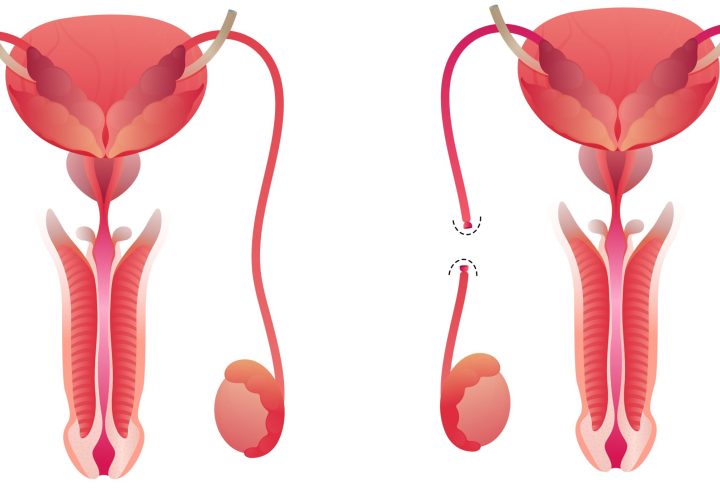Vasectomy is a surgical procedure that involves cutting or blocking the tubes (vas deferens) that carry sperm from the testicles to the urethra, preventing the release of sperm during ejaculation.
It is a safe and effective form of permanent contraception for men who no longer wish to father children.
Why is it done?
Vasectomy is done for personal and/or medical reasons, such as:
A desire for permanent contraception
Medical conditions that make pregnancy unsafe for the partner
Inherited genetic disorders
How to prepare?
Before the procedure, men may need to:
Stop taking certain medications, such as blood thinners
Refrain from smoking, drinking alcohol or caffeine, and engaging in sexual activity
Arrange for transportation to and from the procedure
What to expect?
The procedure usually takes less than 30 minutes, is performed under local anesthesia, and has a low risk of complications such as bleeding or infection.
During the procedure:
The area around the testicles is cleaned and numbed with local anesthesia.
One or two small incisions are made in the scrotum to access the vas deferens.
The vas deferens are cut, tied, or sealed to prevent sperm from passing through.
After the procedure:
Men may experience mild pain and swelling in the scrotum, which can be relieved with pain medication and ice packs.
Men should rest for a few days, avoid heavy lifting and strenuous activity for a few weeks, and wear supportive underwear.
Recovery care?
Men are advised to:
- Rest for a few days
- Apply ice to the area to reduce swelling
- Wear supportive underwear to minimize discomfort and swelling
- Avoid heavy lifting and strenuous activity for a few weeks
Benefits?
Vasectomy is highly effective in preventing pregnancy, with a failure rate of less than 1%.
It is a safe and minimally invasive procedure with a low risk of complications.
Vasectomy does not affect sexual function or hormone levels.
FAQs:
Does vasectomy protect against sexually transmitted infections (STIs)? No, it only prevents pregnancy.
Can a vasectomy be reversed? Yes, but it is not always successful, and the reversal procedure is more complicated than the initial vasectomy.
Is vasectomy associated with an increased risk of prostate cancer or heart disease? No, studies have found no association between vasectomy and these conditions.
